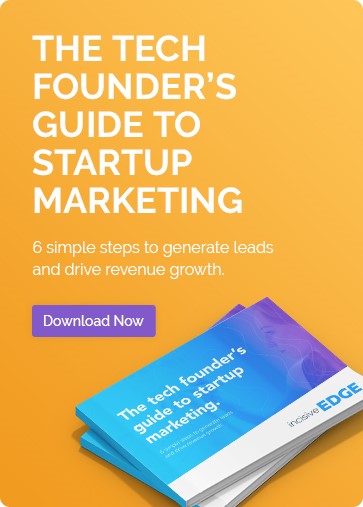On paper at least, content optimisation looks like a straightforward way of attracting more audience and gaining a better presence online: solve buyer pain points by pointing them in the direction of your technology. Simple, right?
Without a clear and defined strategy that includes search engine and content optimization, you’ll find it exceedingly difficult to get your content in front of your audience and generate leads. Simply creating content won't be enough to attract potential customers, and it is crucial to optimize your content for search engines to increase your visibility and reach. That includes on-page elements such as meta descriptions, alt tags, and anchor texts. By incorporating search engine and content optimization techniques into your strategy, you can improve your chances of nurturing leads and driving conversions as well as improving your positioning our ranking on the search results.
Content marketing generates over three times as many leads as outbound marketing and costs 62% less, according to Demand Metric.
Check out the following articles to learn more about content marketing:
- How to Develop a Content Marketing Strategy that Wins
- How to tell if you need a more aggressive Content Strategy?
- Content Audit: Do You Actually Need One? A 2023 Guide
If this sounds all too familiar, it’s time to have another look at your strategy. What might it be missing? Here are some areas that are typically overlooked.
Local Content
As a London-based startup marketing agency, we want to make sure that when people are searching for those localised terms, we rank well on Google. We must be doing something right.

Would your tech startup benefit from being easily searchable by local users on search engine results pages? While it might not be essential for B2B buyers to find a local business to serve their needs, having optimized title tags and search engine rankings can improve your visibility and potentially attract more customers. It's always a bonus if potential customers can easily find your business and set up a meeting, which can be facilitated by being easily searchable on every search engine.

To enhance your local search engine visibility, it's crucial to optimise your content for local SEO. This involves including location-specific information, such as events or launches, in your meta description and title tag. Furthermore, integrating locally relevant keywords into your schema or metadata is essential for targeting your audience effectively. Avoid keyword stuffing, as it can negatively impact your SEO efforts. By implementing these strategies, you can improve your local SEO and increase the likelihood of attracting relevant traffic to your website.
Long tail keywords
Long tail keywords account for 70% of the search traffic around the world. That’s because people, more often than not, use Google to find an answer to a specific question, rather than just searching for a brand name or product.
That's good news for your startup in a lot of ways, as it means you can make yourself searchable without having to compete with the big boys at getting ranked for one of the top target keywords. To capitalise on this opportunity, it's essential to strategically select and integrate these target keywords into your web pages. By aligning your content with these specific terms, you can enhance the relevance of your website in search engine results, increasing the likelihood of attracting your desired audience.
This approach not only helps you avoid direct competition with larger players for broad keywords but also allows you to tailor your content to the preferences of your target audience. Focusing on target keywords and web pages ensures that your startup can carve out a niche in the digital landscape, improving your online visibility and making it easier for potential customers to find and engage with your business.
The key is to match the natural language queries that a typical user would search for – a keyword research and analysis tool will be able to guide you. Then it’s about creating content around those long tail keywords, so that when your audience searches those terms, it’s your article that they end up clicking through to. Through the use of these keyword and content optimization tools, you will be able to improve every blog post you produce.
Voice search optimisation
It’s projected that by 2020, half of all searches will be carried out via voice. You best get yourself voice search optimised, then.
Again, it’s important to think about how people use their voice to search. Typical voice searches use natural language patterns instead of formal keywords or keyword phrases. In other words, people type and speak very differently.
So, when creating content, make sure you’re optimising your on-page elements accordingly by including semantically relevant keywords.

Over to you
We at Incisive Edge specialise in creating bespoke strategies for startups, which may. include optimizing content, brand positioning, search engine optimization and more. It’s out of these strategies that your execution, whether content, paid search, paid social, social selling or organic should emanate – not the other way around.
All too often, we see startups moving straight to execution, but to be honest, that's just the fastest way to burn through your budget. It's crucial to incorporate a bespoke strategy tailored to your business, considering the target keyword and internal links. Agencies may not emphasize this, as it's not always in their interests, and not everyone possesses the expertise for strategic planning. However, when the budget has been spent and results are lacking, the fastest way to retrench is with a strategy.
Find out how we can help your tech startup create a content strategy and assets that cut through the noise and finds your audience. Either contact us, or why not book a free strategic consultation?







